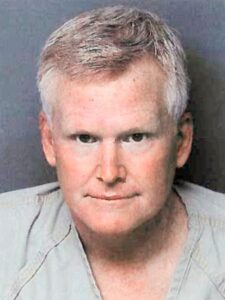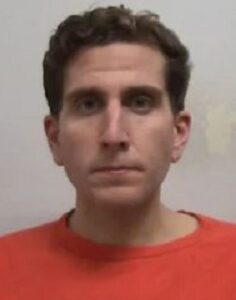Defendants are presumed innocent until there’s a guilty plea or verdict, but you just know lots of people are placing bets on the outcomes of these high-profile cases. People bet on everything from dog races to cockfights. I won’t put money on it, but …
Alex Murdaugh
 This story persuades me he’ll be acquitted. While the jury won’t be 100% confident he didn’t do it, there’s reasonable doubt. The prosecution’s explanation of a motive (he didn’t want his wife and son to discover his financial frauds) is less convincing than the defense theory that drug dealers murdered his family (he was a heavy cocaine user).
This story persuades me he’ll be acquitted. While the jury won’t be 100% confident he didn’t do it, there’s reasonable doubt. The prosecution’s explanation of a motive (he didn’t want his wife and son to discover his financial frauds) is less convincing than the defense theory that drug dealers murdered his family (he was a heavy cocaine user).
Although he lied to police about not being there, no one saw who shot the victims. They were killed with different guns, a rifle and shotgun, which doesn’t make much sense if there’s only one shooter. His son was shot point-blank, but Murdaugh wasn’t covered with blood, as the killer should’ve been. Prosecutors don’t have his DNA or fingerprints on a murder weapon, because the guns haven’t been found.
Could he have done it? Sure. It may be he’s superbly skilled at covering his tracks, and a world-class liar on the witness stand. Alternatively, he might be innocent but jurors may convict him because they hate crooked lawyers. But they’re more likely to err on the side of doubt, because they know a “not guilty” verdict won’t return a killer to the streets. Murdaugh is going to prison anyway, for stealing millions from clients; and given his age (he’s 64) and he’ll get a lot of time for that, he won’t come up for parole until he’s in his 80s.
Update (3/2/23): The jury convicted Murdaugh after only 3 hours of deliberation. Obviously they didn’t believe his protestations of innocence. Did they convict an innocent man? Only he knows for sure. Our legal system, based on English law, allows for convicting the innocent; absolute certainty of guilt is often unattainable, and therefore isn’t required. The practice of using juries to decide guilt or innocence goes back to Classical times (read history of jury trials here). In this case, the quick verdict is a bit surprising, as all the evidence was circumstantial; maybe the jury just didn’t like the defendant. That’s a risk of putting a defendant on the witness stand, as was done in this case. The prosecutors’ theory of motive struck me as ridiculous; they “alleged he killed them to gain pity before being exposed for a slew of financial crimes” (see story here). A more plausible reason for Murdaugh to kill his wife and adult son is there might have been a big family fight over the trouble he got them into; and maybe, in a mental state of desperation, he decided to silence two potent witnesses against him. That makes more sense to me.
Bryan Kohberger
 I don’t know if he did it, and I’m not saying he did, I’m only predicting the jury will convict him.
I don’t know if he did it, and I’m not saying he did, I’m only predicting the jury will convict him.
He lived a 10-minute drive from the murder scene. His car matches the vehicle seen on surveillance videos, and cellphone data puts him at the scene before and after the murders. Prosecutors don’t have the murder weapon, a knife, but DNA on a sheath found at the scene matches his.
The clincher is he kept photos of a victim on his phone (see story here) and repeatedly texted her (see story here), but “she never returned his advances.” That makes it easy to portray him as a spurned suitor-turned-stalker avenging a felt humiliation.
And the case against him has no inconsistencies.